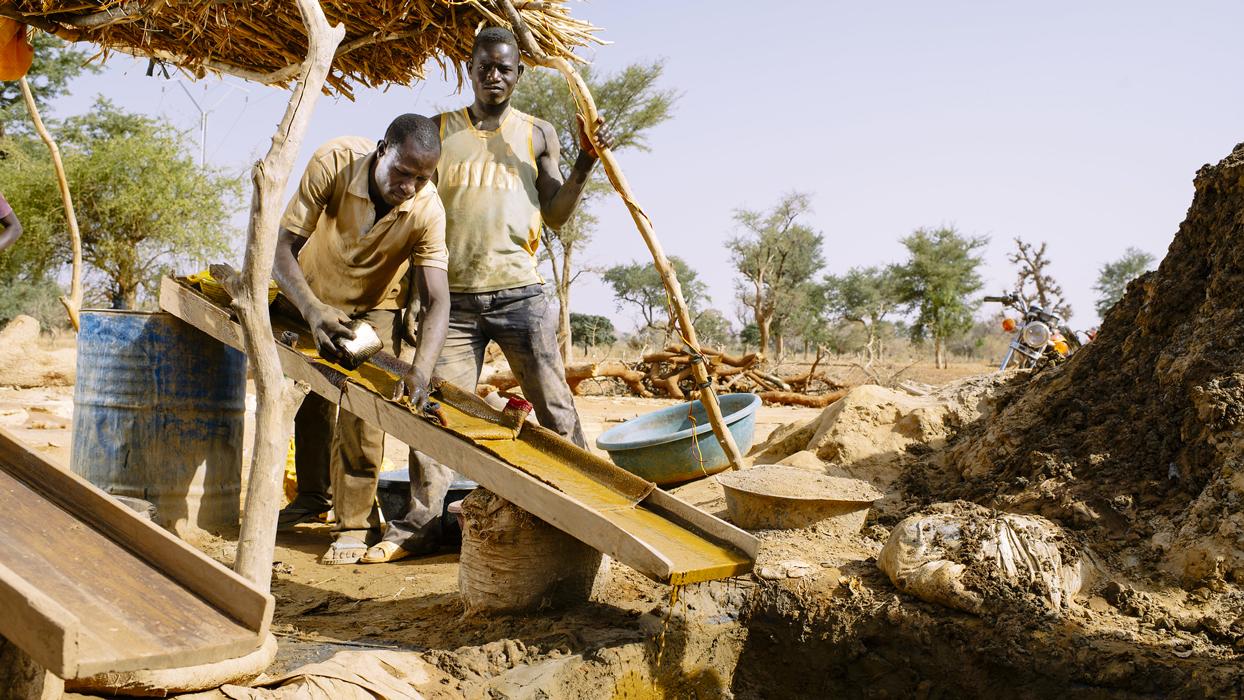In emerging oil- and gas-producing economies, policies aimed at increasing the operation of domestic companies are common. But are these ‘local content policies’ effective in producing the desired social and economic benefits? Research into their use for Kenya’s Turkana oil and gas field shows a more complicated picture, exposing the challenges for their effective implementation.
The limitations of successful LCP implementation in Africa
Local content policies (LCPs) are enforced by governments to ensure firms use domestically-manufactured goods or domestically-supplied services to operate in its economy. In developing economies they are often used with the intention of stimulating job markets, increasing the size of the skilled workforce and developing competitiveness among local suppliers, among other desirable economic outcomes. LCPs need to reflect the political and commercial realities of the local environment and will vary from country to country. Furthermore, they may vary among economic subsectors. It has been argued that LCPs must be flexible and realistic enough to allow for sequential implementation and to achieve various realistic targets and domestic linkages. Given the importance of the oil and gas sector to the national economy of Kenya, any LCP developed for this sector must also form part of the overall national agenda development plan, Vision 2030. To this end, the Local Content Bill of 2018, was enacted to provide a framework to increase local value capture along the value chain of the oil and gas and mining industries. LCPs, like most other policies, face the challenges of implementation and enforcement. The oil and gas sector is a specialised industry which needs highly skilled personnel to ensure strict compliance with regulations. Widespread corruption across Africa is a serious hindrance to encouraging LCP development. It occurs across the oil and gas industry supply chain. For example, in procurement, small companies that refuse or are unable to pay bribes, routinely have their bids ignored by procurement officials. Local citizens are often unaware of the monetary value of the revenue derived from the oil and gas sector. The sector remains accessible to the privileged few who, in turn, have close links to the regime. The inter-relationship between the politically elite in Ghana, for instance, and the national oil fields is well documented. Transparency, accountability and sharing of relevant information are generally given little consideration in many emerging African economies. The success of an LCP in any venture depends on the availability of local skilled and experienced personnel to implement the policy, as well as competent and knowledgeable business people to put the LCP to good use. However, in most emerging oil- and gas-producing countries, local people will have few, if any, competencies in the industry. For example, in Uganda, Ritwika Sen concluded that the success of policy initiatives was dependent upon the capabilities of domestic suppliers to meet the potential demand for goods and services in the oil and gas industry. Sen’s observation is typical of many African countries, where local-content vendors lack the capacity to produce or supply materials that are of the high quality needed for the industry. In addition to limitations in personnel capacity, infrastructure capacity can also be a hindrance to implementation of LCPs. In Ghana an infrastructure deficit of $2.5 billion per annum is the primary obstacle to indigenisation of the national oil and gas industry. It is recommended that regulatory institutions and legal frameworks should be strengthened to attract private investment in infrastructure development in order to ensure sustainable development of local and foreign businesses. Finally, the environment needs to be considered when implementing LCPs. The oil and gas industry can and has caused irreparable environmental damage in areas of extraction. The oil fields of the Niger Delta of Nigeria are a prime example. Gabon provides a good case of an established oil-producing country that also has comprehensive environmental regulations for the industry: its national Hydrocarbon Code of 2019 states that contractors must submit and comply with impact studies, environmental management, decommissioning and refurbishment plans. To this end, oil extraction companies have to establish a fund located with a Gabonese bank and 25% of risks have to be insured locally.
Challenges for an LCP in the Kenya Turkana oil and gas fields
Although Kenya’s 2018 Local Content Bill has been promulgated, serious challenges exist around its implementation in the Turkana oil and gas fields, the country’s primary site of extraction, estimated to hold up to 560 million barrels of oil. Firstly, there is considerable mistrust between the national government and the Turkana county government owing to a lack of open, transparent discussion and local involvement in the establishment of the oil and gas industry. Tension also exists between the local communities and the international oil companies, Tullow Oil and Total, over pastoralist land claims and land rights. Ongoing misunderstandings between the national and county governments and local communities has caused conflict and material damage, resulting in additional security requirements and loss of productivity and reputation, all of which must be avoided if the country is to move forward and benefit from the LCP. A related challenge to implementing the LCP in Turkana is the insecurity associated with conflict from neighbouring counties and countries. For example, threats from al-Shabaab terrorists in Somalia caused Uganda to withdraw from participating in co-financing the pipeline to transport oil through northern Kenya to Lamu port. Implementation of laws and policies has been marred by a lack of capacity in many African countries. In the case of Kenya, and Turkana in particular, the oil and gas industry is a new field. Given the low human development index of Turkana County, there are few if any graduate engineers specialised in the oil and gas sector. However, as the majority of the industry personnel requirements include technicians, plumbers, electricians and safety maintenance technicians, the challenge for the region is to ensure that local human capacity is developed. Turkana County should be assisted by the national government and the oil companies to establish a vocational centre of excellence in the oil and gas sector, which can serve Kenya and neighbouring countries that have discovered oil and gas. For Turkana and other neighbouring counties to benefit from the LCP, legislation and policy should facilitate the development of small and medium-sized enterprises specialised in the oil and gas industry. Given the prevailing conditions in the county, which has been marginalised for years, it will take time to establish such enterprises to supply quality materials and services to the industry. Moreover, as Kerr and Siaw argue, African businesses are struggling to raise capital, acquire new technologies and improve inadequate infrastructure in the hydrocarbon sector. Turkana is no exception. International companies bidding to supply materials to the oil and gas industry should be pushed to establish partnerships with domestic companies. A further challenge to implementing LCPs in Africa is widespread corruption, as seen in the implementation of government policies in Kenya. Finally, operators bidding for contracts, both upstream and downstream, must include environmental impact assessment (EIA) reports in their proposals to indicate how they intend to tackle the anticipated negative impacts from their proposed activities on the surrounding areas. If EIAs are not routinely completed and enforced, then Turkana will find itself facing disasters similar to those that have blighted the Niger Delta.
How can LCPs succeed?
Successful LCPs should be guided by a national vision that details how to prioritise different policy objectives and identify strategic importance in the country. LCPs in countries with a low level of economic development should be flexible. The oil and gas industry is self-contained: major oil companies bring their own equipment, personnel and technology to carry out their operations. Therefore, unless specific action is taken by government and oil companies to create local connections, the local people may not benefit from the oil resources, as happened in the Niger Delta. A number of provisions must take place for LCPs to succeed. National and local governments need to ensure better skills development, build the capacities of local suppliers, establish a fund to support training, innovation and development and, above all, promote good governance, especially in terms of transparency and accountability. Whether Kenya has the political will and national capacity to establish a successful and sustainable LCP in the Turkana oil and gas fields is yet to be demonstrated. Image by John R Perry from Pixabay.





